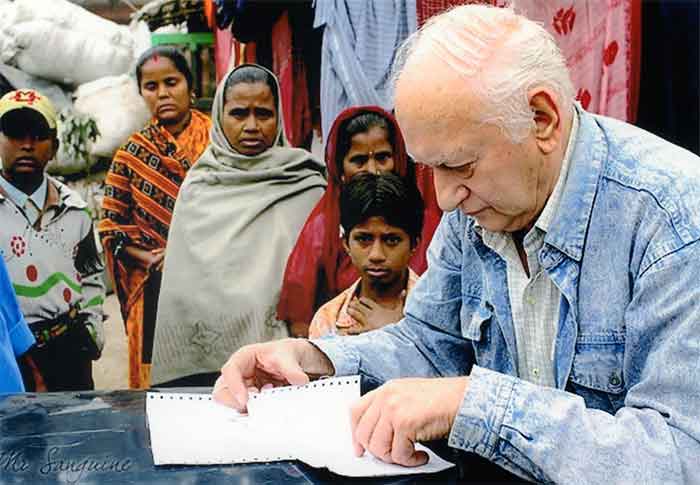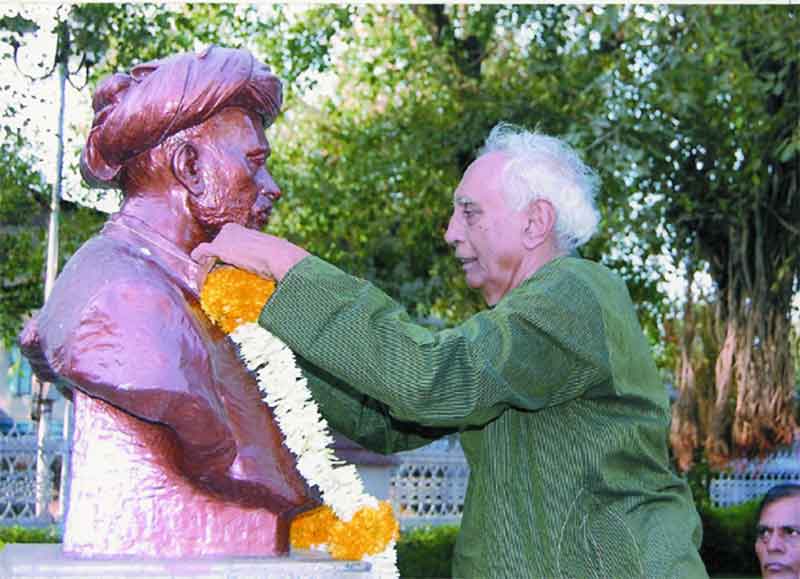
In 1972 a British doctor stumbled to refugee camps in Bangladesh, making sincere but rather clumsy efforts to make a contribution amidst an ocean of unmet medical needs.
Five decades later, this uncertain initial effort has grown enough to reach out to over 500,000 of the poorest patients, many of them with serious conditions who would not have been able to access any care at all if this one had not been available.
What is more, this work has inspired many other doctors to make somewhat similar efforts, contributing to the spread of a street medical care movement in many countries.
What is perhaps most astonishing is that this has been achieved in the middle of so many obstructions that one wonders how the valiant effort survived at all, let alone progressed so much.
Dr. Jack Preger, the unassuming man with a kind smile who started it all, had shown his penchant for things extraordinary from his young years. Having graduated in Economics and Political Science from Oxford, he chose to work as a farmer; then responding to a call of conscience to help the poor in areas of mass distress, he enrolled at the Royal College of Surgeons in Dublin.
He planned to serve in Latin America and prepared for this by learning Spanish. Then overwhelmed by news of the Bangladesh liberation struggle, he responded by leaving instead for the newly independent country in 1972, now learning Urdu and Bangla languages.
He started by working alone on pavements and in refugee camps. By any standards his initial progress was remarkable. Overcoming many difficulties, he managed to set up a clinic and then a small hospital, largely using donations from friends and sympathizers back home in UK and Europe.
But soon he ran into more serious problems. He came across cases of child trafficking—many children taken into temporary care by an agency to protect from famine and hunger never returned to their parents. He also realized that higher level corruption was involved in this trafficking, and was keen to expose this.
With a keen medical eye he explored other areas of injustice and cruelty. Several beggars appeared to have rather symmetrical injuries, raising suspicions that these had been inflicted using a similar weapon and method by someone to prepare them for begging.
However Preger’s initiatives as detective and investigator were soon brought to a rude end by officials and police, and in the process his medical work too was disrupted. He was served a deportation notice, his clinic was shut, patients admitted here were left to their own fate. Thus it was that the 7 year work of Preger in Bangladesh ended very abruptly after 7 years in 1979, although he has continued to campaign against child trafficking related issues all his life since then.
Not willing to waste his newly acquired command over Bangla language, Dr. Preger decided to take his work to India. He came to Kolkata and started anew with patients on the pavements under a flyover near the famous Howrah Bridge.
The work shifted after some time to a pavement of Middleton Row, a more central part of the city where helpers and essential provisions could reach more easily. It is here that I first saw Dr. Preger in action in the course of a visit to the city.
It was a uniquely organized medical effort on a pavement, incorporating innovations almost by the day as solutions were somehow found to new emerging problems and challenges. Medical examinations could be conducted behind hand held bed-sheets. Essential medical tests were done in nearby labs. Temporary structure of tarpaulin sheets on wooden poles provided basic protection from sun or rain. This could be dismantled every night and re-installed every morning, avoiding any allegations of encroachment.
Several nearby doctors offered help and cooperation. Tourists from many countries (particularly western) stopped by to not just admire the pavement clinic, several of them joined as volunteers. Some of them even cancelled their existing travel pans to serve here for a longer period. Nurses among them proved to be the most useful, but others helped too, for example by forming support groups in their own countries.
The clinic helped not just routine but also serious patients, providing life-saving assistance with the help of several nearby hospitals. All treatment and medicines here were free, and poorest patients coming from longer distance even received some travel support.
However officials continued to trouble endlessly citing violation of one regulation or the other, and for a very short while Dr. Preger was even arrested. In the middle of this great uncertainty for 14 years the clinic ran with continuity for six days a week. Finally, with growing fame, government permission came in 1993 for formal registration of this work as Calcutta Rescue, paving the way for more clinics as well as schools and vocational training.
As public spirited doctors visited Dr. Preger they felt inspired to initiate similar street medical care clinics in other places, with Dr. Jack being referred to still as the original pavement doctor. In 2014 Preger contributed to a network where these street doctors and other medical personnel could learn from the best practices of each other. In 2017 Dr. Preger became the first non-Asian to receive the Asian Philanthropy award. In 2018-19, having set up strong systems with a dedicated team in Calcutta Rescue, he went back to UK after completing four decades of pioneering, highly inspiring work in Kolkata.
Never one to give up on his sense of humor, he told me that he is seeking an early retirement at the young age of 88 to loaf around in Norfolk! He did not mention his invaluable contribution of pavement medical care that has healed and helped several hundred thousand people, to which the 92 year old doctor can now look back with immense satisfaction.
Bharat Dogra is Convener, Campaign to Save Earth Now. His recent books include A Day in 2071, Man over Machine and Protecting Earth for Children.
















































